If you do want to be Christians merely by “name”, you have to carry out your daily commitment to “preserve, and not hide”, the light that was given to us at baptism.
This is a commitment that takes place in “everyday” life, taking care not to give in to certain temptations in which one tends to fall. This was the advice Pope Francis offered in his homily at the Mass he celebrated on Monday morning, 19 September, in the Chapel of Santa Marta.
As usual, Pope Francis began his reflection by focusing on the liturgy of the day, and particularly on the passage from the Gospel of Luke (8:16-18), which speaks precisely on the theme of the light, “of Jesus’ counsel not to cover the lamp”, and “to let the light shine and illuminate, that those who enter may see the light”. This advice, the Pope noted, is also reiterated in the Gospel acclamation which, quoting the evangelist Matthew (5:16), invites us to: “Let your light so shine before men, that they may see your good works and give glory to your Father”.
Firstly, the Pope explained, it is important not to fall into a misunderstanding, because typically, “in daily speech, we say: ‘But this is a luminous person; or this person is not luminous’”. Indeed, in the Gospel, “we do not speak about this human brightness. The light of the Lord is not sympathy only. It is something else”. In fact, “to cherish the light is to safeguard something that we have received as a gift and if we are luminous, we are luminous” in the sense “of having received the gift of light on the day of baptism”. It is precisely for this reason, he added, “that at the beginning, in the early centuries of the Church, and even still in some Eastern Churches, baptism is called ‘enlightenment’; and still to this day, “when we baptize a child, we give a candle, with light, as a sign: it is the light that is the gift of God”.
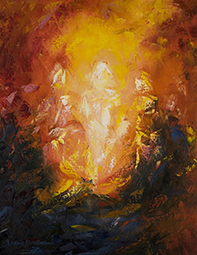
To better understand the nature of this light that “Jesus tells us to cherish”, and “which is given as a gift to everyone”, the Pope also recalled the Gospel passage of the transfiguration: “we think of Tabor, when he shows all of the light that he has”. And, quoting the Psalm which says: “The just one shall live on your holy mountain, O Lord”, he urged: “let us think of that mountain, where the Lord was transfigured, with all of his light”. This is the light “that we must cherish and not hide”.
This commitment, however, concerns our daily life. Thus, the Pope continued, one might ask, “Father, how can this light be hidden? How can one hide the light so that it does not enlighten, and why do men not see the light that comes from good works?”. Once again, it is the liturgy itself that comes to our aid. This time in the First Reading, taken from the Book of Proverbs (3:27-34), in which we see “counsel: tips from a wise father to his children”.
First and foremost, it reads: “Refuse no one the good on which he has a claim when it is in your power to do it for him”. This is very simple: “If you can do good, do good”. Pope Francis added that “everyone has the right to receive the good, because we are all children of the Father who gives us good”. While on the contrary, “the person who does not do good, when they are able to do it, is covering the light” that “becomes dark”.
The Pope focused on this concept by analyzing certain attitudes that are easily found in everyday life: “Do not say to your neighbour: ‘Yes, go, go, go… then pass again and I will give it to you tomorrow’. If you have with you now what the person is asking for — and this is a very strong argument made in the Bible — do not make the needy person wait; do not pay the salary the following day”. Francis made an example by quoting a passage from the Book of Exodus: “If you have pledged him a cloak … give it to him in the evening, so that he can sleep”. All of this serves as a reminder to “never put off the good”. In this respect, the Pope used a very concrete image: the light is not meant to be kept in the fridge, that is to say, it should not be stored; “The good is today, and if you do not do it today, tomorrow it will not be there. Do not hide the good for tomorrow”. And those who think with the logic of “go, pass by again, I will give it to you tomorrow”, are “seriously covering the light”.
The Book of Proverbs adds another piece of advice: “Plot no evil against your neighbour, against one who lives at peace with you”. This is also a reality before our eyes every day. Very often, the Pope explained, “people trust in one person or another, and that person plots the evil to destroy, to get dirty, to lessen”. It is, he explained, “the little bit of mafia we all have at the ready: what takes advantage of our neighbour’s trust in order to plot evil, it is a mafia”, even if it does not actually belong to a criminal organization: “this is mafia, it takes advantage of trust… And that covers the light. It makes you obscure. Every mafia is dark”.
The passage continues: “Quarrel not with a man without cause, with one who has done you no harm”. This also occurs in everyday life. Francis underlined: “we like to quarrel, right? Always. We are always looking for a little something to quarrel about. But in the end, we grow weary of quarreling: you cannot live” in this way. “It is better to let it go, to forgive”, the Pope added, to the limit of “pretending not to see things” in order to “avoid quarreling constantly”.
The wise Father in the Scriptures continues with his advice and asks: “Envy not the lawless man and choose none of his ways: To the Lord the perverse one is an abomination, but with the upright is his friendship”. It happens sometimes that we “are jealous, that we envy those who have things, who have success, or who are violent”. Yet, Francis commented, if we considered “the history of the violent, of the powerful”, we would realize that “the same worms will eat us, eat them; the same! In the end we will all be the same”. The fact remains that “envying power, and being jealous… this covers the light”. And the Scripture goes even further: “The curse of the Lord is on the house of the wicked, but the dwelling of the just he blesses”. It is then added that the Lord, rather, shows kindness “to the humble”.
Therefore, the Pope again urged that we listen to this advice concerning “everyday” life — “they are not strange things” — and that we welcome the invitation to “be children of light, and not children of darkness; to guard the light that was given to you as a gift on the day of baptism”. In conclusion, the Pope invited “all of us who have received baptism” to pray to the Holy Spirit so that “he might help us not to fall into these bad habits that cover the light, and that he help us to carry forward the light we received freely, that light of God that does so much good: the light of friendship, the light of meekness, the light of faith, the light of hope, the light of patience, the light of goodness”.

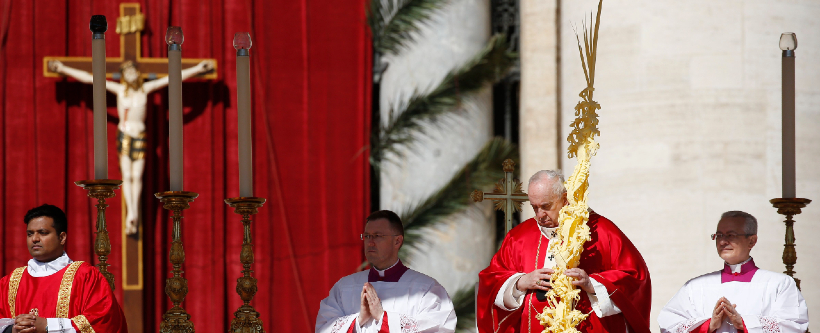
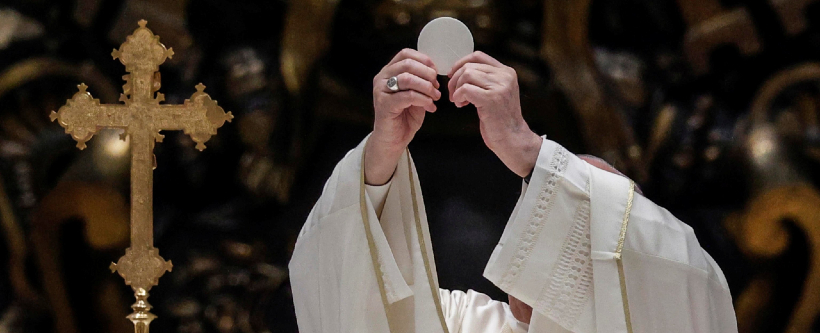
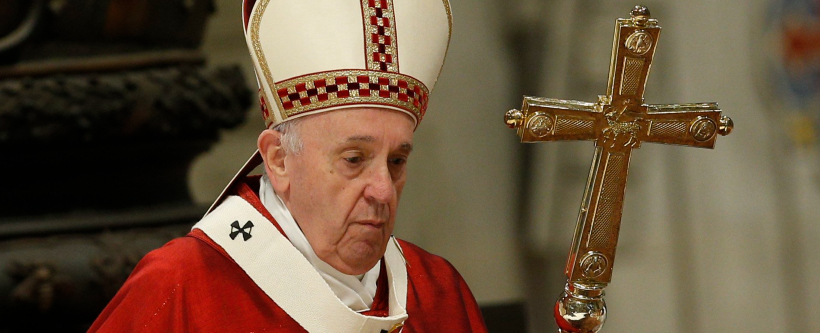
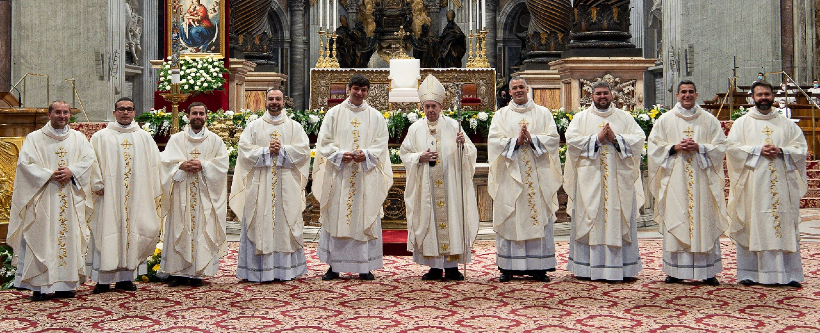
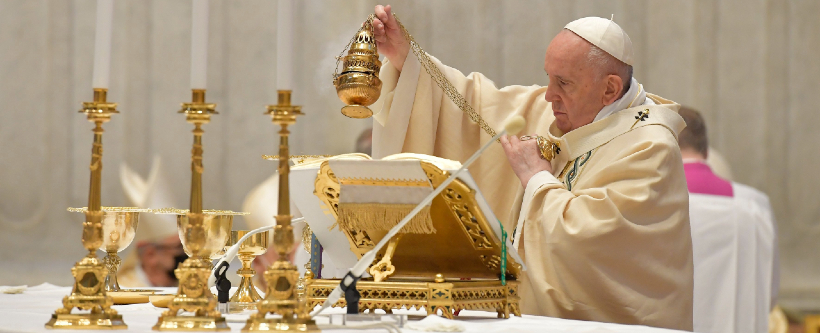
Facebook Comments